Premium Only Content
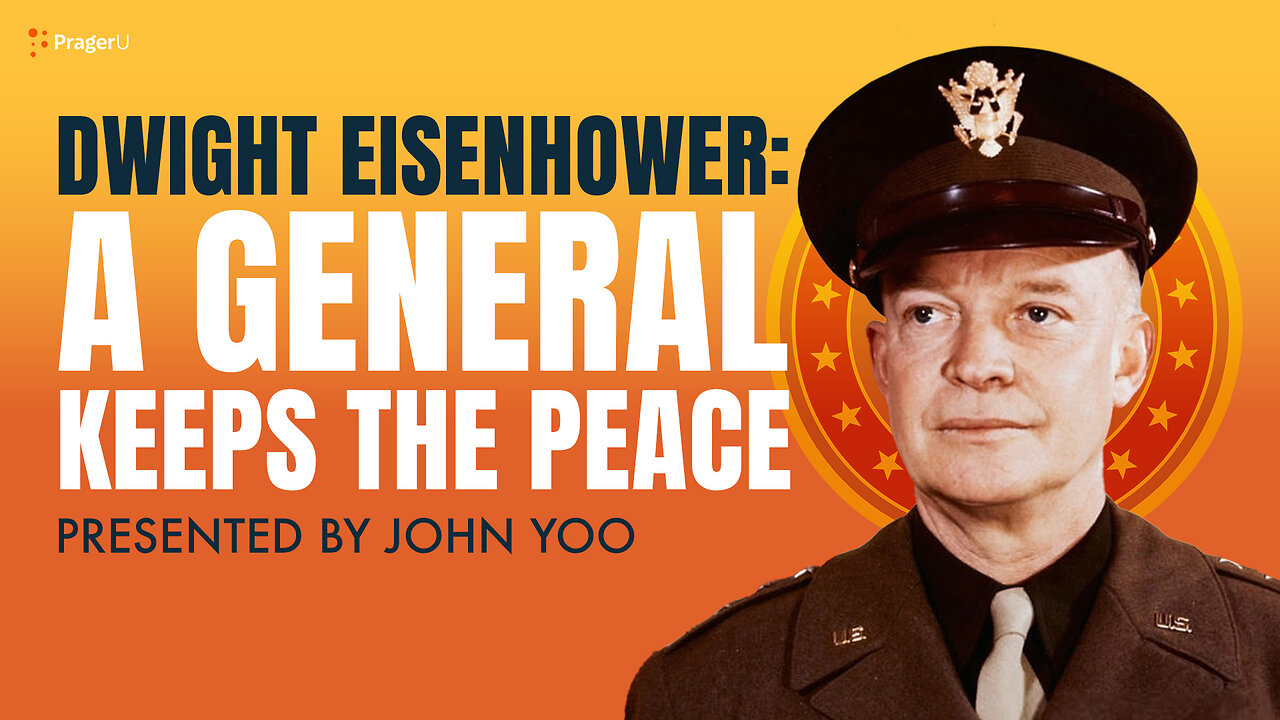
Dwight Eisenhower: A General Keeps the Peace | 5-Minute Videos | PragerU
The 1950s are widely regarded as a period of undisputed American greatness. The United States dominated the world in almost every respect, from science to culture, from John Wayne westerns to commercial aviation. What was Dwight Eisenhower’s role in this decade of prosperity? John Yoo, Professor of Law at the University of California, Berkeley, has the answer.
Script:
When Dwight Eisenhower, or “Ike,” as he was universally known, was elected the 34th president of the United States in 1952, the American people weren’t exactly sure who they had voted for.
He ran as a Republican, but was he a conservative? A moderate? A liberal?
Ultimately, it didn’t really matter. The decorated World War II general who had waged war now promised to wage peace. And the voters trusted he would keep that promise.
Their trust was not misplaced. His first major act as president was to resolve the conflict in Korea that had begun in 1950 and cost America 36,000 lives.
Here’s how he did it: he made it clear to the Chinese, North Korea’s patron, that if they didn’t agree to a cease-fire, he would not hesitate to use nuclear weapons.
Soon after, an agreement was reached, drawing a line between North and South Korea at the 38th parallel. That agreement stands to this day.
Would Eisenhower have actually followed through on his threat? We’ll never know, but that was the whole point.
“After Ike made peace in Korea,” Eisenhower biographer Jean Smith wrote, “not a single American died in combat for the next eight years.”
Throughout his time in office, he was urged to use American military power to resolve conflicts. And for eight years he resisted.
In 1953, the French wanted him to come in on their side in Vietnam.
In 1955, Chiang Kai-shek, the ruler of Taiwan, wanted America’s help to take on Communist China.
In 1956, the Hungarians wanted him to back their revolt against Soviet rule
Each supplicant made a good case for American intervention. Each time, Eisenhower refused to commit American troops. If he didn’t see a clear path to victory, the risk, in his mind, was greater than the reward.
And even though he said he was prepared to use nuclear weapons, he greatly feared their destructive power.
To that end, he sought a treaty with the Soviets to end the arms race. He proposed that the US would open up all its military facilities to Russian inspection—provided the Soviets did the same. But the Soviet leader Nikita Khrushchev declined. He dismissed the proposal as an American trick to spy on the Soviet Union. It wasn’t a trick. Eisenhower really meant it.
If Khrushchev wouldn’t make a deal, Eisenhower would do what he had to do: make sure that America’s nuclear capacity far outstripped the Soviets.
But while he recognized the Soviet threat, he didn’t blindly accept the advice of his military chiefs. As a career soldier, he knew that the armed services always assumed the worst about an adversary’s capabilities—the better to boost their budgets. But Eisenhower never took the bait. In fact, he trimmed portions of the military budget repeatedly during his tenure. He famously worried about what he coined the “military-industrial complex”.
He brought the same pragmatism to the domestic front. His philosophy here was not much different than his foreign policy philosophy: if he could keep the country out of war—in this case, political war —everything else would take care of itself.
See the rest: https://l.prageru.com/4cvqxhs
Follow PragerU on social media!
Instagram ➡️ (https://www.instagram.com/prageru/)
Twitter ➡️ (https://twitter.com/prageru)
Facebook ➡️ (https://www.facebook.com/prageru/)
-
 5:51
5:51
PragerU
3 days agoIs Israel a Liability? | 5-Minute Videos | PragerU
3.27K17 -
 LIVE
LIVE
RalliedLIVE
6 hours ago $2.69 earnedSHOTTY BOYS VS WARZONE
2,292 watching -

Dr Disrespect
8 hours ago🔴LIVE - DR DISRESPECT - WARZONE VERDANSK - EXTREME CHALLENGES
98.5K6 -
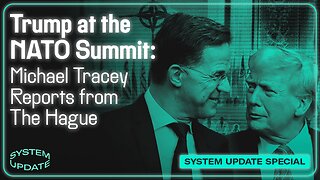 26:31
26:31
Glenn Greenwald
5 hours agoTrump at the NATO Summit: Michael Tracey Reports from The Hague | SYSTEM UPDATE #477
46.4K9 -
 LIVE
LIVE
RiftTV/Slightly Offensive
4 hours agoSHOCKING: Pro-Israel Extremist CRUCIFIES Christian Pastor | The Rift
709 watching -
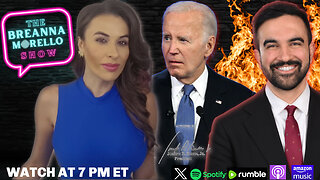 LIVE
LIVE
The Breanna Morello Show
6 hours agoAutopen Scandal Gets Worse, Commie Take Over in NYC?, FBI Whistleblowers Need Help, Dividing MAGA- The Breanna Morello Show
312 watching -
 38:23
38:23
ZeeeMedia
4 hours agoBanks Make Shock Move, Signals of Looming Economic Storm | Daily Pulse Ep 55
1.45K2 -
 1:04:38
1:04:38
BonginoReport
3 hours agoWho’s Your Daddy?! Internet Erupts After Viral Trump Moment (Ep.78)
155K33 -
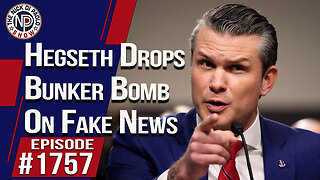 1:01:38
1:01:38
The Nick DiPaolo Show Channel
4 hours agoHegseth Drops Bunker Bomb On Fake News | The Nick Di Paolo Show #1757
22.6K18 -
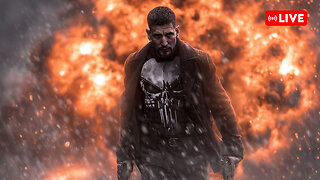 LIVE
LIVE
SpartakusLIVE
3 hours ago#1 Verdansk HERO || Live EARLY off EARLY
107 watching